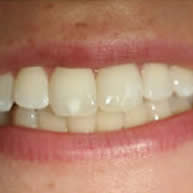Sometimes it is necessary to have a tooth removed. Common reasons for dental extractions include infection, disease, teeth crowding, or injury. Your dentist will usually refer you to an oral surgeon who specializes in mouth surgeries to extract your tooth. If there is an infection present, the extraction should be scheduled as soon as possible so that it doesn’t spread or cause more serious problems. It is helpful to know what to expect during and after a tooth extraction so you will be prepared.
What is the procedure like?
You will be given a local anesthetic to numb the extraction area, or a stronger general anesthetic if several teeth are being removed or the procedure is complex. General anesthesia will put you to sleep and prevent pain in your entire body. After the extraction is complete, you may need stitches which will either have to be removed later or will dissolve on their own. You might be instructed to bite down on gauze initially after the procedure to help stop any bleeding, which is a normal part of the tooth extraction procedure.
What about recovery?
Follow your doctor’s instructions carefully for the best recovery results. You can usually expect recover to take at least a few days. Here are some guidelines to help with healing:
- Take pain medications as prescribed.
- Change gauze pads before they are saturated with blood.
- Do not drink through a straw for the first 24 hours.
- Gently rinse your mouth with warm salt water several times a day after the first 24 hours following surgery. This will help reduce pain and swelling.
- Avoid smoking.
- Limit physical activity because it can promote bleeding.
- Eat soft foods like thin soup, gelatin, and pudding. As you heal, you can increase your intake of solid foods.
- Try not to rub the extraction area with your tongue.
- Carefully brush your teeth and tongue as directed by your doctor.
If you live in the Clinton NJ area and you need a great dentist, contact our dental office today.






